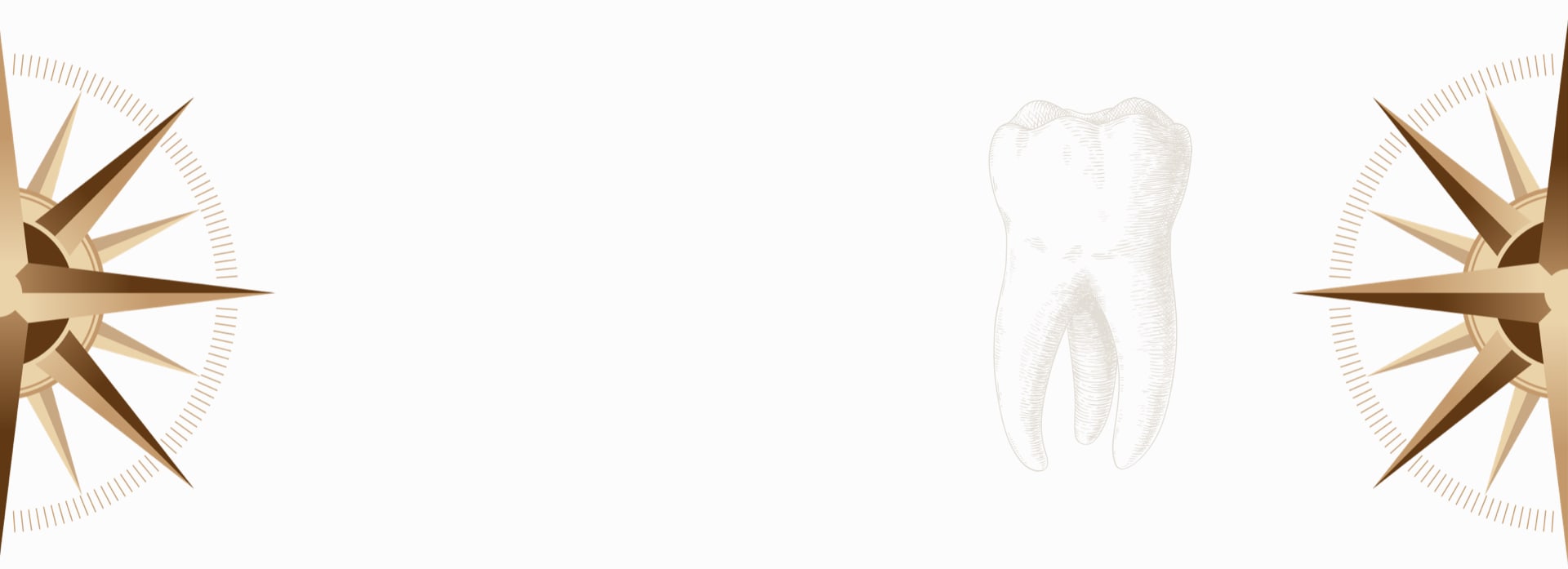When you consider restorative dentistry options like dentures to restore your smile, you might wonder what they are made of. Understanding the materials can help you have a more informed conversation about your options and what might work for you.
Modern dentures are typically made from a combination of materials, most commonly acrylic resin, porcelain, flexible polymers, and metal alloys. The specific materials used depend on the type of denture you need and your personal preferences for comfort, appearance, and durability.
The 2 Main Parts of a Denture
Your dentures have 2 key components that work together to restore your smile and function. Each part is made from different materials selected for specific properties.
The Base or Plate
This is the pink, gum-coloured foundation that fits over your natural gums. It provides support for the artificial teeth. This part is custom-made to fit the unique shape of your mouth for a secure fit, and the CDA notes that a proper fit is crucial for comfort and function.
The Artificial Teeth
These are the replacement teeth attached to the base. They are designed to look and function like natural teeth. They can help you chew and speak properly.
Materials Used for the Denture Base and Plate
The choice of material for the base of your dentures affects their fit, feel, and strength. Here are the common options you might discuss with your dental professional.
Rigid Acrylic Resin
Rigid acrylic resin is a widely used material for denture bases. It’s a type of plastic that can be precisely molded and coloured to match your gums.
- Pros: Affordable, easy to adjust, and repair.
- Cons: Can feel bulky and may be more prone to breaking on impact compared to other materials.
Flexible Polymer
A newer alternative to traditional acrylic, these bases are made from a thin, lightweight thermoplastic material. They offer a different kind of fit and feel.
- Pros: Very lightweight, offering a snug fit, and less likely to shatter if dropped.
- Cons: Can be more difficult to repair or reline than acrylic.
Cast Metal
Often used for partial dentures, a cast metal framework provides a strong, durable, and thin base. Cobalt-chromium alloy is a common choice.
- Pros: Very strong and durable, with a thin profile for less bulk, and a good fit.
- Cons: Higher cost, may take longer to make.

Materials Used for Denture Teeth
The artificial teeth on your dentures need to be durable enough for chewing while also looking natural. The 2 primary materials used for this are porcelain and acrylic.
Porcelain
Porcelain teeth offer a very lifelike appearance, with a translucency that mimics natural tooth enamel. They are a harder material than acrylic.
- Pros: They look very natural, are stain-resistant, and long-lasting.
- Cons: Can be more abrasive against natural teeth and may produce a clicking sound during chewing.
Acrylic Resin
Acrylic teeth are a popular choice due to their durability and ability to bond securely with the acrylic denture base.
- Pros: Lighter weight, less expensive, less likely to chip or crack on impact.
- Cons: Wear down faster than porcelain and may stain more easily over time.
How Your Denture Material Affects Daily Life
The materials used to make your dentures have a direct impact on your experience with them. Your dentist can help you weigh these factors based on your specific needs.
Comfort and Fit
Lighter and thinner materials, such as flexible polymers or cast metal, may feel less bulky in your mouth. The precision of the fit is key to comfort, regardless of the material.
Durability and Longevity
Metal and porcelain are typically more durable and wear-resistant. However, acrylic is less likely to shatter from an accidental drop. The overall lifespan of your dentures will depend on both the material and proper care.
Appearance and Aesthetics
Both porcelain and modern acrylics can provide a natural-looking smile. Your denturist works to select a tooth shape and shade that suits your appearance.
Cost Considerations
Generally, dentures made with a standard acrylic base and acrylic teeth are the most economical option. Dentures that incorporate metal frameworks or porcelain teeth often have a higher initial cost.
An Overview of Different Denture Types
The materials used often depend on the type of denture you need. Whether you are missing a few teeth or all of them, there is a solution available.
Complete Dentures
These replace all the teeth in your upper or lower jaw. They are typically made with an acrylic base, and you can choose between acrylic or porcelain teeth.
Partial Dentures
Used when some natural teeth remain, partial dentures fill in the gaps. They often use a cast metal or flexible polymer base with clasps that attach to your existing teeth for support.
Implant-Supported Dentures
For a more secure fit, dentures can be anchored to dental implants—titanium posts placed in the jawbone. This option adds stability, though it is important to understand the key differences between dentures vs. implants before making a decision.
Explore Your Denture Options Today
Choosing the right denture is a personal decision based on your health, lifestyle, and budget. At Grand West Dental, we’re here to guide you through your options and answer any questions you may have.If you’re ready to explore how dentures can help restore your smile, we invite you to schedule a consultation with our team. Contact us today to learn more about the solutions available to you.









